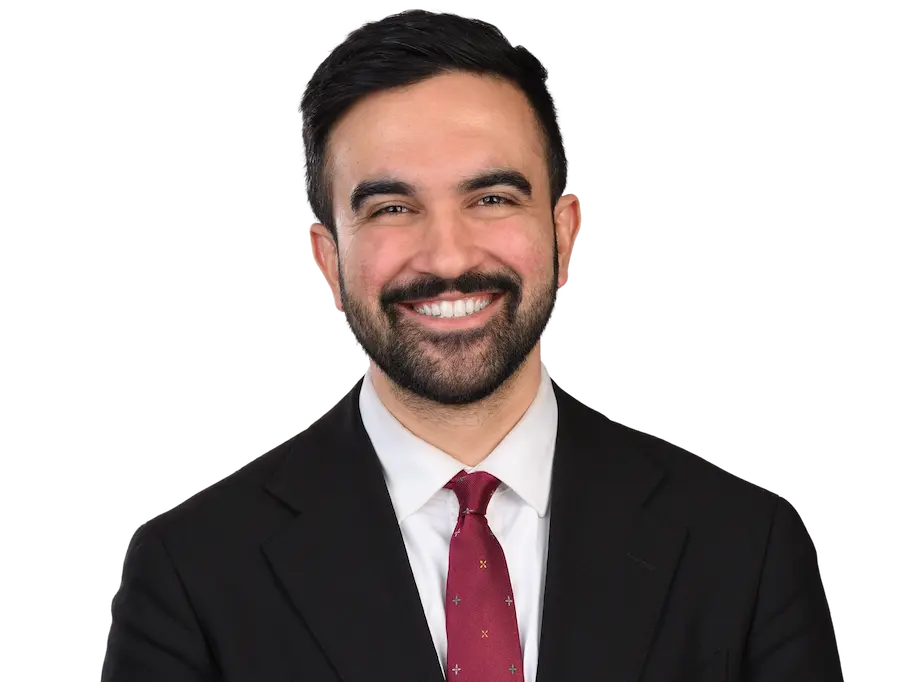
Indian-origin politician Zohran Mamdani stuns New York by winning the Democratic mayoral primary with a bold socialist agenda
The Rise of a Disruptor: From Queens to City Hall
In a political upset that has left New York’s establishment reeling, 33-year-old Zohran Mamdani, an Indian-origin democratic socialist has clinched the Democratic nomination for mayor, defeating former governor Andrew Cuomo in a stunning primary showdown. With his roots in Kampala, Uganda, and a lineage that includes acclaimed filmmaker Mira Nair and renowned academic Mahmood Mamdani, Zohran’s story is as global as it is local.
But it’s not just his heritage that’s making headlines, it’s his unapologetically radical platform. Mamdani’s campaign, built on promises of free city buses, rent-stabilized housing, and city-run grocery stores, has drawn comparisons to the populist “freebie culture” often seen in Indian elections. His supporters hail him as a champion of the working class, while critics warn of economic ruin.
Mamdani’s messaging delivered through slick social media content, subway monologues, and grassroots rallies, has resonated with younger, progressive voters disillusioned by establishment politics. His campaign didn’t just knock on doors; it knocked down political norms.
The “Indian Trick”: Freebies, Friction, and Fiscal Firestorms
The phrase “Indian trick” has been used both admiringly and critically to describe Mamdani’s strategy. Drawing inspiration from Indian political playbooks, where promises of free electricity, water, and public services often sway elections, Mamdani’s platform is built on the idea that basic needs should be rights, not privileges.
Among his most controversial proposals:
- Fare-free city buses and a freeze on subway fares
- 200,000 rent-stabilized housing units over the next decade
- City-run grocery stores to combat food insecurity
- A $30 minimum wage by 2030
- A 2% tax on New Yorkers earning over $1 million annually to fund these initiatives
Supporters argue that these policies are essential in a city where affordability is vanishing. “We can be free and we can be fed,” Mamdani declared in his victory speech. But critics—from business leaders to political moderates, are sounding alarms. Billionaire supermarket owners have threatened to shut down chains, and tech CEOs warn of a mass exodus of capital if Mamdani’s policies are enacted.
Even Mayor Eric Adams called him a “snake oil salesman,” accusing him of making promises he legally can’t fulfill as mayor. Former President Donald Trump chimed in, branding Mamdani a “100% Communist Lunatic” on social media.
A New York Crossroads: Revolution or Recklessness?
Mamdani’s victory is more than a political win, it’s a cultural moment. He represents a new generation of leaders who blend activism, identity, and digital savvy into a potent political force. His campaign was less about policy papers and more about vibes, vision, and viral content.
But now comes the hard part: governance. Can Mamdani translate his bold promises into sustainable policy? Will the city’s budget survive his sweeping reforms? Or will his tenure become a cautionary tale of idealism colliding with economic reality?
What’s clear is that Mamdani has already changed the conversation. He’s forced New York to confront uncomfortable questions about inequality, affordability, and who the city is really for. Whether he becomes a transformative mayor or a polarizing figure remains to be seen, but one thing’s certain: New York politics will never be the same again.
Stay updated with the latest news on Rapido Updates. Keep yourself updated with The World, India News, Entertainment, Market, Automobile, Gadgets, Sports, and many more
1 thought on “Freebies or Fiscal Folly? Zohran Mamdani’s Radical Gamble Shakes New York Politics”